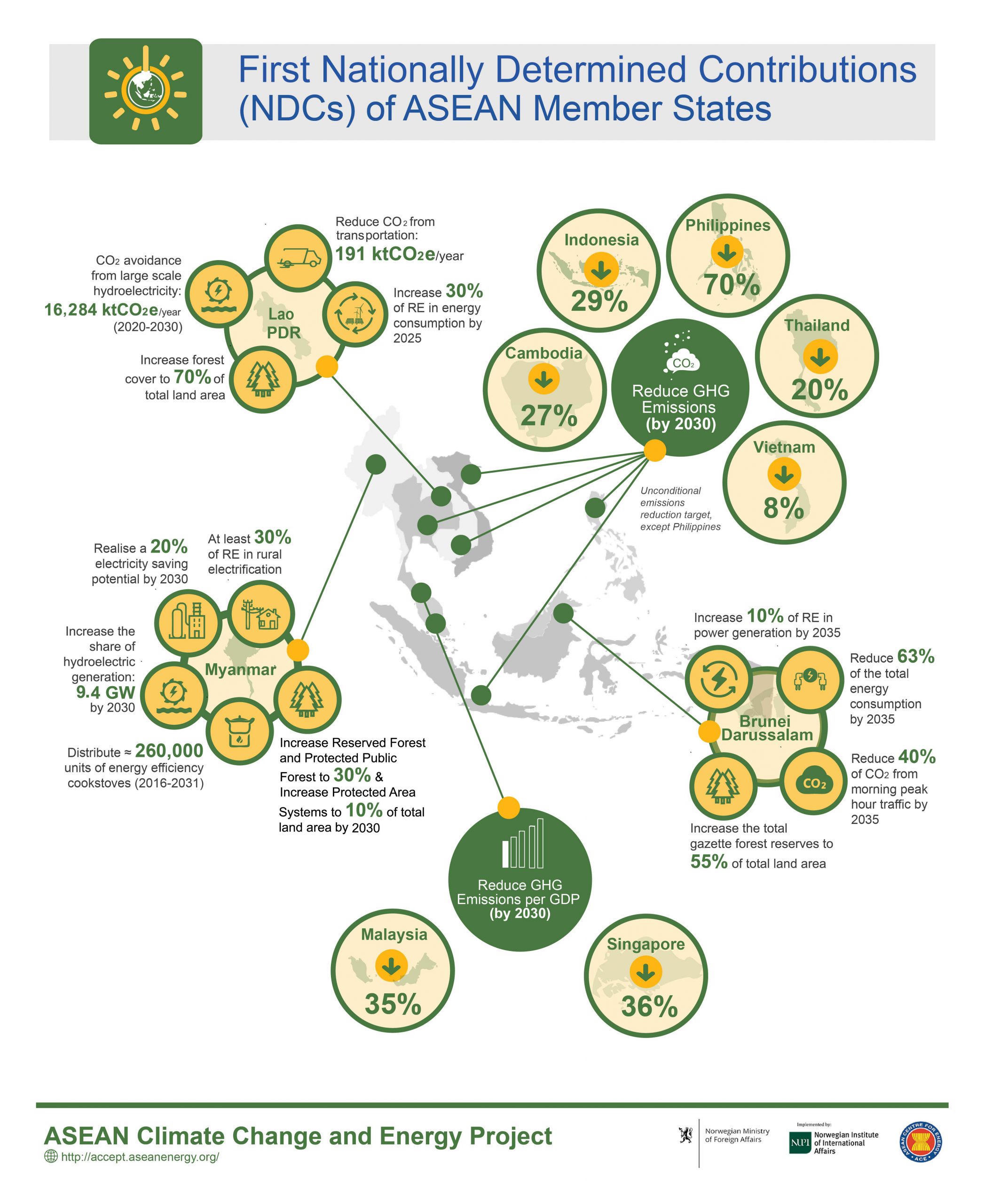Jakarta, 19 May 2020
In the midst of Covid-19 outbreak, ASEAN Climate Change and Energy Project (ACCEPT) has completed its In-house Sharing Phase 1 with the final session: International Agreements on Climate Change. The lecture was delivered by Dr Chan Hoyyen via online webinar. There were nearly 25 participants who connected remotely.
The lecture started with the background of international agreements related to climate change, followed by the overview of the Intergovernmental Panel on Climate Change (IPCC), the United Nations Framework Convention on Climate Change (UNFCCC), and the Kyoto Protocol (KP). We learned that IPCC provides scientific, technical, and socio-economic assessment reports and contributes to the objective of the UNFCCC in stabilizing greenhouse gas concentrations in the atmosphere at a level that would prevent dangerous anthropogenic interference with the climate system. While KP implemented the objective of the UNFCCC by setting binding emission reduction targets for 37 industrialized countries and the European Community. In addition, the lecture also highlighted several important milestones related to COPs and UN Climate Action Summit.
The last section showed a comprehensive explanation of Paris Agreement and the National Determined Contributions (NDC) of the ASEAN Member States (AMS). Paris agreement aims to strengthen the global response to the threat of climate change, in the context of sustainable development and efforts to eradicate poverty. It includes mitigation which requires all parties to prepare and maintain their NDCs and to pursue the domestic measures to achieve them.
Furthermore, parties are mandated to communicate the NDCs every 5 years and provide information necessary for clarity and transparency. Voluntary cooperation/market and non-market-based approaches that recognize the possibility of voluntary cooperation among parties that involve internationally also discussed. Furthermore, adaptation to enhancing adaptive capacity enhances the mechanism on loss and damage to developing approaches to help vulnerable countries from climate change, finance technology, capacity-building support, transparency, implementation, compliance, and global stocktake also mentioned in this agreement.
 Figure 1. First NDCs of ASEAN Member States (As of December 2019)
Figure 1. First NDCs of ASEAN Member States (As of December 2019)
All parties to the Agreement, including the AMS, were requested to communicate their first NDCs as the post-2020 climate actions to reduce national emissions and to adapt climate change impacts. The AMS shall also communicate a new or an update of the NDCs by 2020. t. Clarity, transparency, and understanding in communicate their NDCs are important to develop strategies in achieving the NDCs. In this webinar, Dr. Hoyyen shares her views on how the AMS could improve the transparency of their NDCs in the next submissions.
The lecture was ended up with a touching song namely A Youth Climate Change Protest Song: Karma of The Butterfly Effect (Jahboy’s Green Project 2019) after a Q&A session.
For more details, please see the presentation file here and feel free to contact the ACCEPT team if you need any further information. In addition, we also invite you to review our In-house Sharing Sessions 1 and provide some inputs through this link. Stay safe and don’t forget to check out our COVID-19 page for more information on impacts of COVID-19 to energy and climate sector in ASEAN!
(JPS|R)